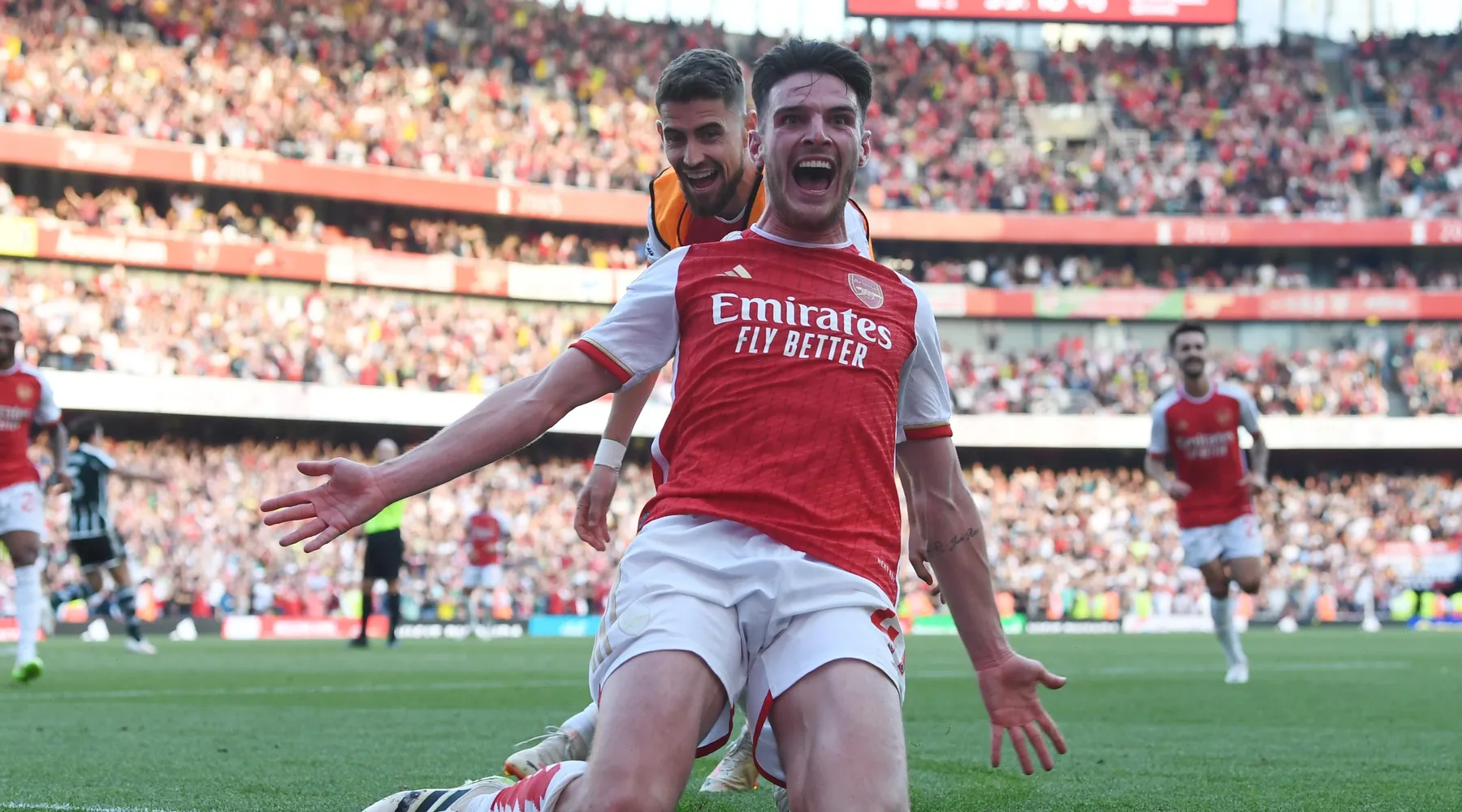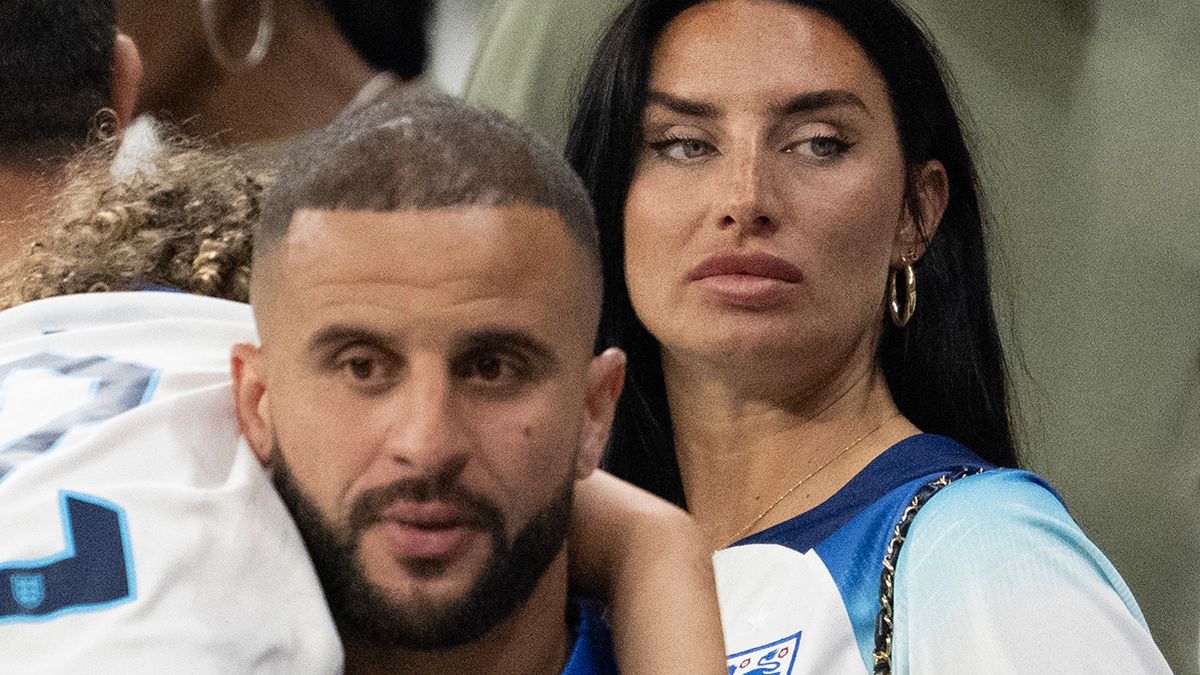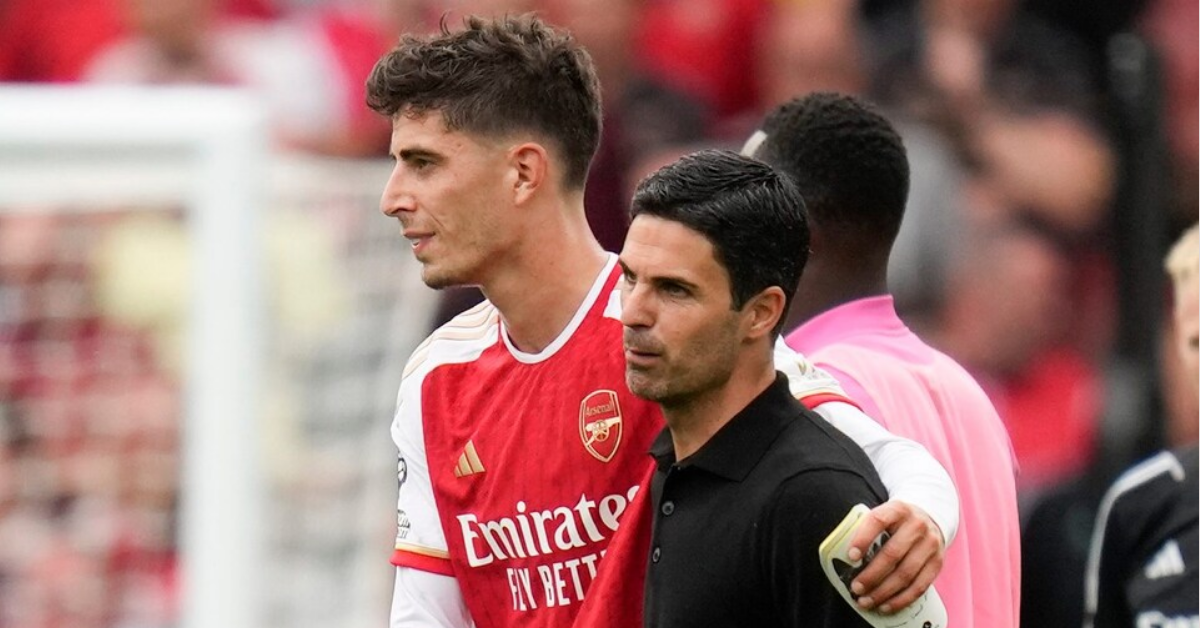According to Alex Keble, the Gunners’ thrilling 3-1 victory was determined by the substitution of Fabio Vieira for Kai Havertz.
The strategies Arsenal employed to defeat Manchester United are examined by Alex Keble.
A wild and breathless match at Emirates Stadium that could have gone either way was put on course for a victory by Declan Rice’s injury-time goal.
Just a few minutes earlier, Alejandro Garnacho’s goal for Man Utd, which was later overturned for offside, came within millimeters of rewriting this game’s narrative.
The analysis should take into account those narrow margins.
A more stodgy first half of tactical chess, marked by neither side displaying much fluency, gave way to a more traditional second half that featured possession versus counterattacks. Man United were dangerous enough to avoid criticism for the change in tactic, even though Arsenal’s increasing pressure ultimately forced the victory.
We examine the course of the action and how Kai Havertz’s replacement of Fabio Vieira ultimately determined the result.
First half is tense due to Arsenal’s conservatism.
The main goal of Arsenal’s victory was to relieve the pressure and change the game’s tempo in the second half.
However, before that, it’s important to describe how things had appeared in the tense and cautious beginning.
The goal of Man Utd’s refusal to press high on Arsenal was to stop the visitors from evading the press and finding space in the final third.
That came as no surprise considering Erik ten Hag typically chooses to sit off, tempt the opposition forward, then counter-attack from behind when facing top teams.
Arsenal’s choice to take a similar action, however, was unanticipated.
The game was primarily played in a crowded middle third of the field because neither team harassed the United defenders, possibly out of fear of exposing themselves to a quick Man Utd transition.
Both United’s and Arsenal’s PPDAs of 23 and 19 points, which measure the intensity of a team’s pressing, respectively, were astronomically high and far above their respective season averages of 7 and 9 points.
Mikel Arteta’s concerns were justified, as demonstrated by Marcus Rashford’s breakaway goal, which was also United’s first touch in the opposition box and first shot of the game.
However, there was another factor that contributed to the slight obstruction.
Once more, Havertz appeared to be a little out of his element in his role as the left-central midfielder, finding it difficult to link up with Gabriel Martinelli and resulting in frequent Arsenal moves failing.
The below-average positions chart illustrates how far Havertz (No. 29) was from Martinelli (No. 11), which caused the traffic jam.
Vieira and tactical adjustments are important.
Compared to the first half, the second half was noticeably different, with Arsenal dominating possession and territory and Man Utd settling in deeper and occasionally scoring on a counterattack.
United in particular appeared to have made a deliberate change, though it is impossible to know for sure whether this was by accident or design.
They pumped long balls forward in the hopes of finding substitute Rasmus Hojlund, but they only had 34% of the ball in the second half after having 55% in the first.
As for Arsenal, they increased the pressure after Havertz was replaced by Vieira.
When the ball suddenly began to flow down the left, Arsenal had the ability to push United back by moving from side to side, which is what they did to force the corner from which Rice scored.
Vieira had 13 touches in his 22 minutes on the field compared to Havertz’s 25 in his 76. If repeated for the entire 90 minutes, Vieira would have made 53 point 2 touches and Havertz would have made 29 point 6.
Vieira’s engagement wasn’t just about how much he was doing; it was also about the positions he was filling. He switched with Martinelli to put pressure on United while being taller and wider than Havertz.
But Vieira’s influence shouldn’t be the main point of attention.
Garnacho came very close to giving Man Utd the victory with what would have been their second breakaway goal, which would have also served to justify the tactical shift that saw United drop deeper and play a more aggressive counterattacking game.
Instead, a somewhat chaotic game ended with Arsenal snatching the win at the very last second. Gabriel Jesus’s goal on the break in the 11th minute of stoppage time added gloss to the final score.
It will be Arteta’s goal to restore calm by ceasing to win matches in this manner.
He could start Vieira before Havertz in order to accomplish that.
For more updates, we are at your service all day long and all night long.



